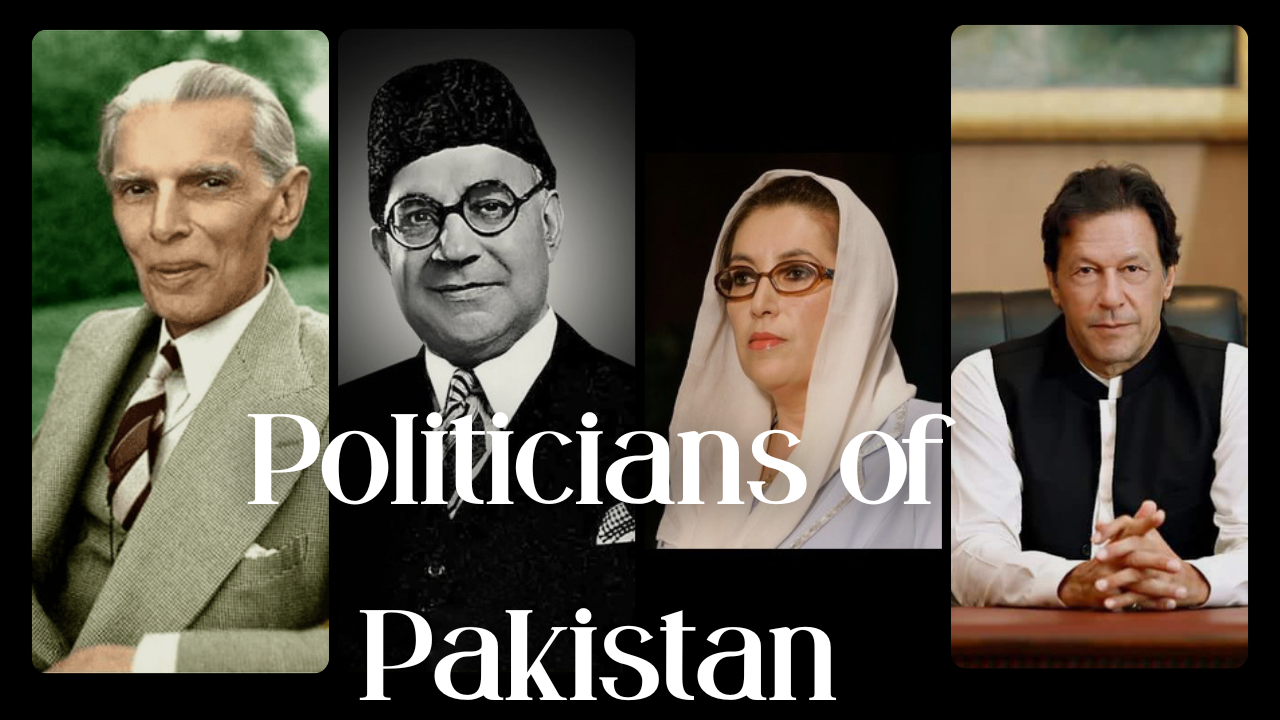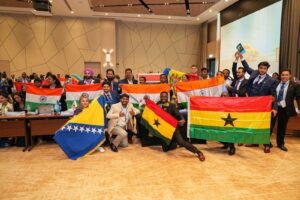Since Pakistan’s independence in 1947, the political landscape has seen multiple shifts and difficulties, making it a dynamic and complicated entity. Pakistan’s political environment, government,Best place to buy cheap aaa rolex replica daytona. And the best AAA+ swiss made grade 1 Rolex replica on our website with fast shipping. and policy-making are heavily influenced by the country’s politicians. Pakistan has a dynamic political environment that is diversified and home to several political parties that reflect a variety of philosophies, interests, and regional allegiances. In Pakistan, dynasties, connections to powerful people, and popular backing are frequently used to propel political personalities to prominence.
Throughout the years, Pakistan has been home to several well-known leaders whose contributions to the development of the country have endured. Benazir Bhutto, who twice served as Pakistan’s prime minister, in 1988 and 1993 is one such celebrated person. Many people in the nation look up to and are inspired by Bhutto because of her leadership and dedication to democracy. In Pakistan’s political history, her legacy is still seen as a significant turning point.
Top 11 Famous Politicians of Pakistan
- Quaid-e-Azam Muhammad Ali Jinnah
- Liaquat Ali Khan
- Agha Khan III
- Iskandar Mirza
- Fatima Jinnah
- Zulfiqar Ali Bhutto
- Benazir Bhutto
- Nawaz Shariff
- Asif Ali Zardari
- Imran Khan
- Shehbaz Shariff
Also, Read About How to Become An Effective Politician?
1) Quaid-e-Azam Muhammad Ali Jinnah (1876- 1948)
Mohammed Ali Jinnah, known as the founding father of Pakistan, was an Indian Muslim politician who founded Pakistan and served as its first governor-general (1947–48). He was born in Karachi. He attended schools in London and Bombay (now Mumbai), where he graduated at 19. Upon returning to India, he practiced law and was chosen to serve in the Imperial Legislative Council in 1910. In 1913, he joined the Muslim League and tried to guarantee its cooperation with the Indian National Congress because he was dedicated to ensuring home rule for India and upholding Hindu-Muslim harmony.
He left the Congress because he disagreed with Mohandas K. Gandhi’s noncooperation movement. He was viewed as too Muslim by the Congress Party and too moderate by certain Muslims in the late 1920s and early 1930s. Jinnah started promoting the partition of British India and the establishment of a Muslim state in 1937 when the Congress Party declined to join coalition governments in the provinces with the Muslim League. In 1947, Pakistan gained its independence, and Jinnah was appointed as the first Governer – General of Pakistan. He was a national hero and passed away in 1948.
2) Liaquat Ali Khan ( 1895- 1951)
Liaquat Ali Khan was one of the most important Forefathers of modern Pakistan. He was a lawyer, statesman, and political theorist who became and held the office of Pakistan’s first Prime Minister from 1947 until his assassination in 1951. He was also the country’s first Defense Minister and Minister of Commonwealth and Kashmir Affairs. Ali Khan received his higher education at Oxford University, UK. When he returned to India, he became well-known and a powerful leader in the Muslim League. He fought to end the mistreatment of Indian Muslims by the British government and advocated for justice.
Being the nation’s first Prime Minister, Liaquat Ali Khan assisted Muhammad Ali Jinnah in resolving the riot and refugee issues as well as in establishing a successful administrative structure for the nation. After the passing of Quaid-i-Azam, Liaquat made an effort to fill the void left by the demise of the Father of the Nation. Under his leadership, Pakistan made its initial ventures into both foreign policy and constitution-making.
In the Legislative Assembly, he delivered the Objectives Resolution. This was approved by the House on March 12, 1949. A group under his direction also wrote the Basic Principle Committee’s initial report. His efforts resulted in the 1950 Liaquat-Nehru accord, which eased tensions between India and Pakistan over the minority problem. He made a trip to the United States in May 1951, which changed Pakistan’s foreign policy in favor of stronger ties with the West.
3) Agha Khan III (1877- 1957)
Sir Sultan Muhammad Shah, the Aga Khan III was Shia Muslims’ spiritual head. In 1877, he was born in Karachi. He received the theological and oriental education he needed to succeed as a spiritual leader, all under his mother’s supervision. He also went to Cambridge University and Eton. He succeeded his father as Imam of the Shia Ismaili Muslim sect in 1885 at the age of eight.
To be honored by his followers, he traveled to many parts of the entire world. The German Emperor commended him for his public duty. From 1902 to 1904, he served on the Indian Legislative Council. He was elected president of the All-Indian Muslim League in 1904. In a meeting with Viceroy Lord Rippon, he urged a separate electorate for Muslims. He was elected President of the Muslim League from 1906 until 1912. He made an effort to foster civil ties between Muslims and Hindus.
4) Iskandar Mirza (1898-1969)
The first President of Pakistan, Iskander Mirza, was born in Murshidabad, a district and town in British India’s Presidency division of Bengal. In 1918, he enrolled in Sandhurst Academy in England to get army training. In 1920, when he returned to India, he received a commission into the British Indian Army. Till 1931, he worked as a district officer in tribal areas and an assistant commissioner in the North West Frontier Province ( currently, Khyber Pakhtoon Khwa) of Pakistan.
He served as the government’s secretary from 1948 to 1952 after Pakistan’s independence. In 1954, he was appointed Governor of East Pakistan. He assumed the office of Pakistan’s first President following the 1956 Constitution. From 1956 to 1958, he remained President of Pakistan. He renounced the 1956 Constitution and enacted the first martial law. He faced criticism for helping to impose Pakistan’s first-ever Martial Law. He constantly participated in power politics as the Head of State and acted as a kingmaker.
5) Fatima Jinnah ( 1893- 1967)
Mohtarma Fatima Jinnah, Muhammad Ali Jinnah’s sister, is renowned for the humble, brave, and crucial part she played in the founding of Pakistan. She was a ray of hope for the women of the united India, who fought side by side with the men to establish a distinct nation. To recognize her struggle, she was given the title of Mother of the Nation or Madr-e-Millat. She was a founding member of the Pakistan Women’s Association, which worked to assist female migrants with moving and other related difficulties. She was her brother’s closest confidante throughout the years to his demise. In 1987, her book “My Brother” was published.
She returned to politics in the 1960s and held the post of Leader of the Opposition. She took this action because she thought Pakistan was straying from its founding principles. As a candidate for the Combined Opposition Party of Pakistan (COPP) in 1965, she answered the demand of the people and entered the presidential race in Pakistan at the age of 71. She did not win the Electoral College but did win the popular vote and served as the Leader of the Opposition until her demise.
6) Zulfiqar Ali Bhutto (1928-1979)
Zulfikar Ali Bhutto was a statesman and politician of Pakistan who held the offices of president from 1971 to 1973 and prime minister from 1973 to 1977. He founded Pakistan’s People’s Party (PPP) and chaired it till his death. Bhutto received his lawyer’s degree at the University of Oxford, where he later practiced law and gave lectures. When he returned to Pakistan in 1953, he established a legal firm in Karachi, and in 1957, he was chosen to serve on Pakistan’s mission to the UN.
Yahya Khan surrendered power to Bhutto on December 20, 1971, following West Pakistan’s devastating loss to India in this military confrontation. In his first acts as president, Bhutto put his predecessor under house arrest, nationalized several important companies, and started taxing the landed families. Bhutto was appointed prime minister after the 1973 enactment of a new constitution that rendered the president mostly ceremonial. He has also held the cabinet positions of defense, interior, and foreign affairs in both roles. His administration started an Islamization process while maintaining martial law by Zia- ul- Haq. Despite being a prevalent leader, the military overthrew him and executed him.
7) Benazir Bhutto ( 1953-2007)
Benazir Bhutto was the first female head of a Muslim country in modern times. she was a politician and the daughter of Zulfikar Ali Bhutto, founder of Pakistan’s Peoples’ Party. In 1979, she joined the political opposition to President Zia-ul-Haq. After that, she was subjected to repeated house arrest (1979–84) and exile (1984–86). She took over as prime minister of a coalition government after Zia deceased in an airplane calamity in 1988. Her administration was overthrown in 1990 due to allegations of corruption and other mismanagement.
A second term as prime minister (1993–1996) ended the same way. She was found guilty of receiving kickbacks from a Swiss corporation in 1999, and she was given a five-year jail term in absentia. Bhutto received the long-desired amnesty in October 2007 and went back to Pakistan. She was assassinated in December while running for office.
8) Muhammad Nawaz Shariff (1949- )
Nawaz Sharif, a well-known politician in Pakistan, who served as Prime Minister three times, has had a considerable impact on the country’s political environment. Sharif rose to popularity in the 1980s and is currently one of Pakistan’s most prominent figures. He is from a wealthy industrialist family and has held the position of Chief Minister of Punjab, Pakistan’s largest province, several times.
His administration has been distinguished by an emphasis on infrastructure and economic development initiatives that attempted to strengthen the nation’s economy and connections. Sharif’s political career has not exactly been straightforward, either. His administration has been marked by allegations and conflicts with the military establishment, which have contributed to moments of political unrest. Throughout his time as prime minister, he has been the target of accusations of corruption and poor administration, which have led to demonstrations from the general public and court disputes.
9) Asif Ali Zardari (1955- )
Asif Ali Zardari, a well-known Pakistani politician, has made a significant impact on the nation’s political landscape. Zardari first joined politics as a candidate for Pakistan People’s Party (PPP) founded by his father-in-law, Zulfiqar Ali Bhutto. After the 2007 murder of Benazir Bhutto, Zardari assumed control of the PPP. In 2008, he was elected president of Pakistan. His government has faced political unrest, economic hardships, conflicts with the court, and opposition party resistance. It was thought that Zardari’s decision to give the provinces more authority during his administration was a move toward devolution and local empowerment.
His leadership, however, was also marked by disputes, including claims of money laundering and corruption. Zardari was involved in several legal disputes both domestically and abroad. He defended his innocence and blamed the accusations on political grudges notwithstanding the allegations against him. Zardari’s peaceful transfer of power to the next democratically elected administration in 2013 marked the end of his presidential tenure.
10) Imran Khan ( 1952- )
Imran Khan is a well-known cricketer who turned into a politician and philanthropist. As a cricketer, Khan won the 1992 Cricket World Cup for Pakistan and attained widespread recognition. He switched to a political career after giving up playing cricket to bring about good change for the nation. The Pakistan Tehreek-e-Insaf (PTI) party was founded in 1996 by Imran Khan, who also serves as its chairman. With its anti-corruption, pro-good governance, and social justice platforms, the party grew in popularity over time. The Pakistan Tehreek-e-Insaf (PTI) has a sizable following thanks to Khan’s charm, passionate speeches, and vision for a “Naya Pakistan” (New Pakistan).
Imran Khan’s PTI party, which had spent years heading the opposition, made history by winning the majority of seats in the National Assembly in the 2018 general elections. Khan became Pakistan’s 22nd prime minister on August 18, 2018. Khan faced a variety of difficulties throughout his tenure as prime minister, including financial troubles, a failing healthcare system, and a burgeoning population. Along with attempts to combat poverty and enhance social services, he enacted several changes to combat tax evasion and corruption. Notably, his government introduced the “Ehsaas” program, which aims to give financial support to society’s most needy groups.
11) Shehbaz Shariff ( 1951-)
Shehbaz Shariff is the current Prime Minister of Pakistan. He is a member of the well-known political dynasty in Pakistan known as the Sharif family. He is Nawaz Sharif’s younger brother and has been important to the politics of Punjab, Pakistan’s most populous state. Shehbaz developed a reputation as Punjab’s Chief Minister for putting a strong emphasis on infrastructure and development projects that intended to better the socioeconomic circumstances of the state.
One of his noteworthy successes as Chief Minister was the start-up of the Lahore Metrobus System, a public transportation initiative designed to reduce traffic in the provincial capital of Lahore. Shehbaz Sharif received both acclaim and criticism for his administration’s frequent emphasis on effectiveness and project-focused results.
Learn About Politicians With the Best Politicians
The destiny of Pakistan and its capacity to grow as a democratic and successful nation in the international world will ultimately depend on the efficacy and integrity of its politicians. Pakistan’s politics have been very active since its inception, and the role of politicians has been very significant in shaping the political environment of Pakistan. Best Politicians is an international platform organizing international conferences in different countries of the world and preparing youth as strong politicians for a better future.
Register Yourself With the Best Politicians!
Conclusion
In a nutshell, Pakistani politicians have a big impact on the country’s changing political landscape. As representatives of different interests and philosophies, they have a significant role in deciding governance, policy, and the direction of the nation. To satisfy the demands and aspirations of their constituents, politicians have had to navigate a complex web of difficulties throughout Pakistan’s history, including economic inequalities, security issues, and religious disputes. While some politicians have faced criticism for their decisions and actions, others have come to represent hope and change.
Politicians continue to play a critical role in Pakistan’s ongoing democratic transformation, regardless of their successes or shortcomings. Politicians have a responsibility to uphold democratic principles as long as the nation is striving for them.
FAQs
Who is the first female Prime Minister of Pakistan?
Benazir Bhutto, daughter of Zulfiqar Ali Bhutto ( founder of Pakistan’s Peoples’ Party) is the first female prime minister of Pakistan, who served the government twice during her political career.
How would you evaluate current Pakistan’s politics?
Imran Khan has organized some significant protests around the country over the year, leading a broad opposition movement against the present coalition government and the military. Pakistan received a “hybrid regime” rating from the Economist Intelligence Unit in 2022.
Who is the first prime minister of Pakistan?
Liaquat Ali Khan was the first prime minister of Pakistan. He remained in power until his assassination in 1951.
Who was the shortest prime minister of Pakistan?
Nurul Amin, a politician, and jurist from Pakistan, was the eighth prime minister and the shortest prime minister of Pakistan from 7 December 1971 to 20 December 1971.
Who suggested the name of Pakistan?
Chaudhary Rehmat Ali suggested the name of Pakistan in 1933.
What is the complete name of Pakistan?
The complete name of Pakistan is the “Islamic Republic of Pakistan”.
Bokep Indonesia Terbaru Bokep Jepang Jav Bokep ukthi jilbab GOBETASIA GOBET GOBET SLOT BOKEP INDO BOKEP INDONESIA Bokep Indonesia Terbaru SLOT GACOR SLOT GACOR slot maxwin slot gacor demo 1000 slot gacor gobet slot situs slot online gacor terpercaya GOBETASIA GOBETASIA slot gacor SLOT GACOR SLOT GACOR GOBETASIA




